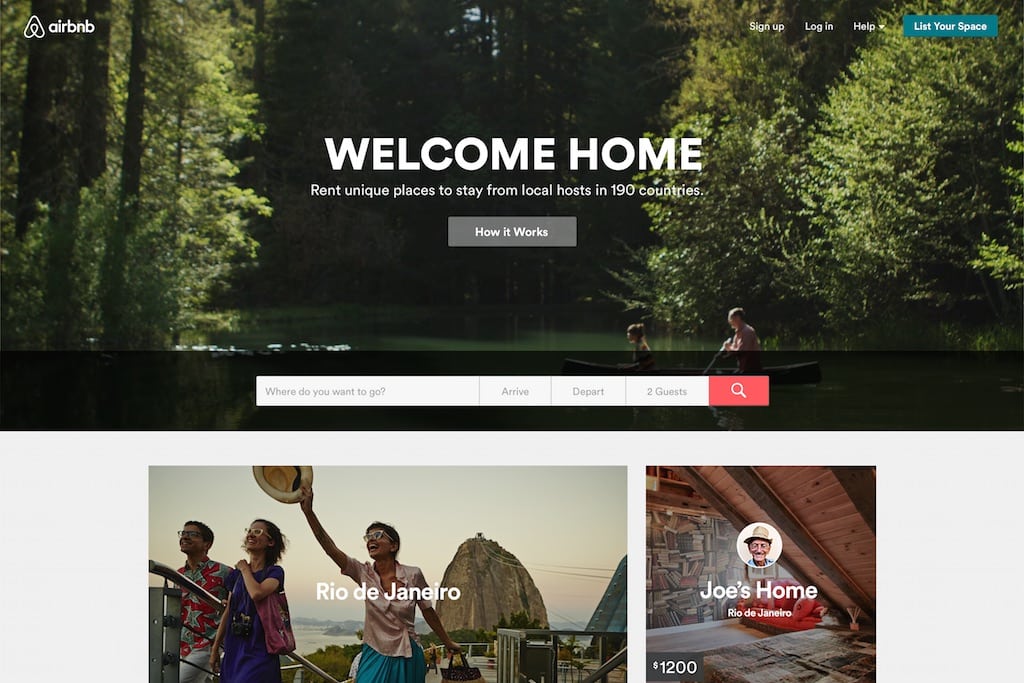Is Trust Enough in The Sharing Economy?

Skift Take
One criticism of the sharing economy (or gig economy or peer-to-peer economy or whatever you want to call it) that has always stuck, is a perceived lack of trust.
If you book a Marriott Hotel or take a London black cab, you know what you're getting and more importantly, know who to go to if things go wrong.
It's slightly different with the likes of Airbnb and Uber. The companies are really just technological enablers with the individual driver or homeowner the point of contact.
To try and combat some of these problems and others, the UK trade organisation for companies in the sharing economy has launched its own industry standard.
Four firms took part in the pilot scheme and all of them have been awarded the TrustSeal. Sharing Economy UK has now opened up applications and has ambitions of rolling it out across the world.
Any company wishing to sign up will need to complete a self-assessment form, which will then be checked by accountancy firm PwC.
TrustSeal was showcased at an event in central London last week and while it's main aim appears to be as a symbol of certain standards and best practices, many of those who spoke at the Sharing Economy Symposium believe it could also head off the threat of further regulation from governments or other regulatory bodies.
Held to account
Cities and governments across the world have taken a variety of stances on regulating new entrants to a particular market, with some opting for an outright ban and others cracking down with tough rules.
In France Airbnb now collects a tourist tax of €0.83 per person per night on behalf of home owners and Uber has only recently re-entered the Spanish market after dealing with pressure from taxi groups in the country.
Things are slightly easier in the UK. Individuals can now claim a £2,000 tax allowance from selling goods and services online and there are few rules restricting operations.
Still, some threats exist. Airbnb has come under fire for the alleged negative effect it is having on London’s property market and the chairman of ABTA, the UK's main travel body, believes established companies are being unfairly penalised.
“The joy of this sort of system is that it’s not formal regulation. Effectively it’s a form of robust self-regulation and the idea is to encourage companies to understand, to adhere to a certain set of principles that sort of act like a form of osmosis, not just for that company – its spreading those principles across the entire sector,” said Mark Gallagher a founding partner of communication consultancy PageField and a member of the advisory panel to the new TrustSeal.
Nick Stringer, a digital media consultant who was appearing on the same panel as Gallagher, agreed.
“Hard legislation isn’t going to work with a sector like this. Its nascent, it’s entrepreneurial, it’s full of start-ups. You need the flexibility,” he said.
How will we work in the future?
Although the companies that took part in the the trial are relatively small, at least one giant has expressed an interest.
In a separate discussion, James McClure, General Manager (Northern Europe) at Airbnb, said the home-sharing platform was “going through the process” of joining the scheme, while Uber’s Jo Bertram said it was something that the taxi company would “look at”.
Bertram also spoke out on the subject of regulation. She said: “A lot of time regulation while purporting to be in the consumers’ interest is often either protecting the incumbent or is not actually open to new technology.”
Another area where the new companies of the “gig” economy are coming under pressure is in employment. Their employees often don’t get the benefits associated with full-time work, but at the same time they get the freedom to do as much or as little as they want.
Is this a sign of things to come? One lawyer who works in the sector thinks so.
“Our view of this one is that over a period of time – it’s difficult to say how long this will be – but there will be a rethink about our traditional employment work and models to come up with something which sits better with aspects of the sharing economy and is something more of a halfway house,” said Andrew Saul, Senior Partner at Osborne Clarke.
“It’s clear from lots of surveys that individuals welcome the independence and flexibility that the sharing economy gives and are less hung up about worker rights.”
If comments by Matt Hancock, digital policy minister, in the UK government's Department for Culture, Media and Sport are to be believed, top-down regulation isn't likely any time soon.
In his opening remarks at the conference he said that there was "strong evidence" that the feedback system common to apps and websites was in some cases "better than regulation as a safeguard of quality".
But as these companies continue to grow and seep more and more into the mainstream, will they be able to escape forever?
Not according to another speaker Gail Mandel, CEO of Wyndham Vacation Rentals, who believes regulators are just playing catch-up.
“This happens any time you have a new entrant into an industry: the regulations just haven’t caught up. It’s finding that fair and balanced place from a regulatory environment that will work to ensure growth in the industry but also to protect the consumers.”




